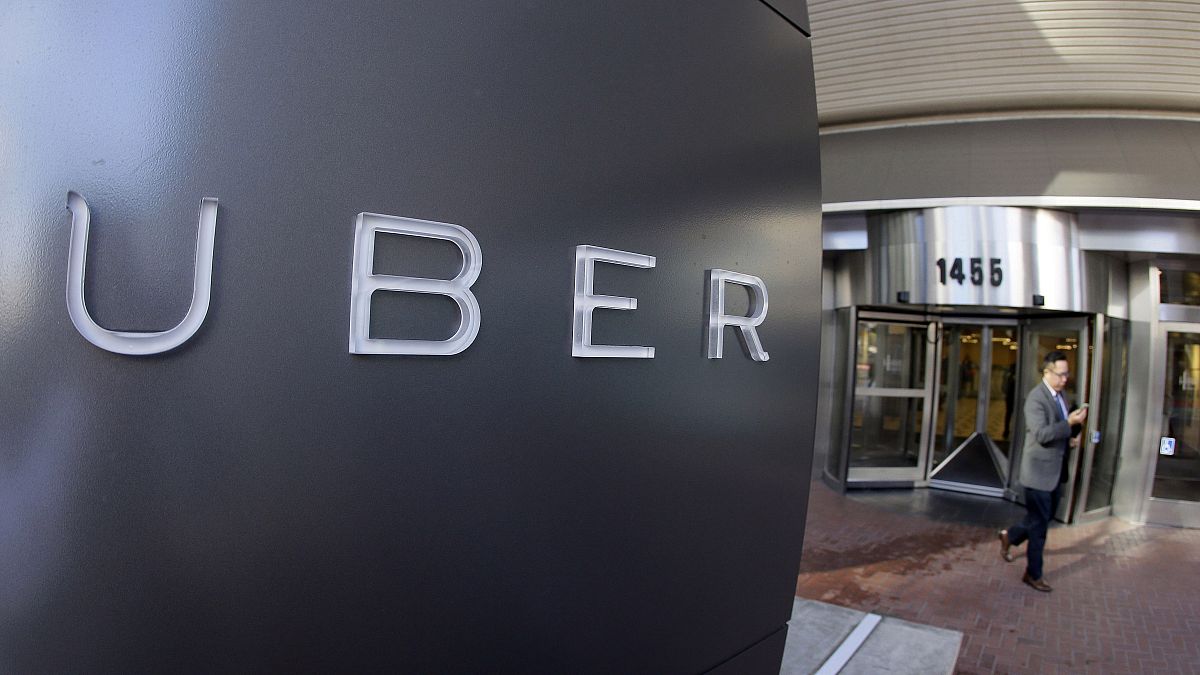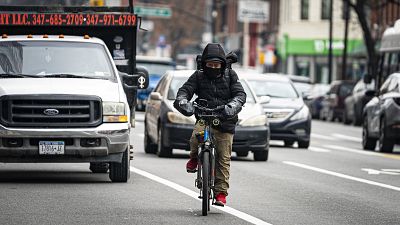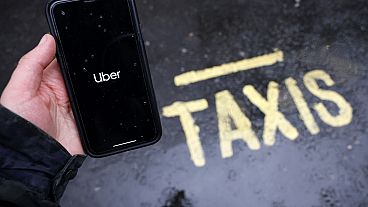A recent French parliamentary committee report highlighted workers’ vulnerability at Uber as the EU debates regulations to strengthen digital platform workers’ rights.
A new French parliamentary committee report highlighted Uber’s poor treatment of workers as it criticised President Emmanuel Macron’s “opaque yet privileged” relationship with the US multinational.
In July 2022, whistleblower Mark MacGann, a former Uber Europe lobbyist, leaked over 120,000 documents to The Guardian, revealing Uber's aggressive influence strategy in roughly 40 countries.
Over a period of six months, a French parliamentary committee heard testimony from 120 individuals, including two former prime ministers, Bernard Cazeneuve and Manuel Valls.
The resulting report underscored the dire consequences of Uber’s treatment of workers including the: “extreme vulnerability of workers, especially those who are undocumented” and job outsourcing.
The committee pointed out that Uber's model disadvantaged drivers, who were compelled to endure “working conditions imposed by the platform without any of the compensation to which they should have been entitled” such as severance pay.
It also emphasised that French civil courts had recognised some Uber drivers as employees in several cases, similar to the UK in 2021.
Circé Lienart who worked in the Paris Centre for Courriers - which opened in 2021 - testified that 75% of drivers worked six days a week, with over half of them working 9 to 12 hours a day for less than minimum wage.
There was also a "sharp decline in taxi income" due to the significant reduction in the value of taxi licenses that drivers could sell, according to the report.
Sociologist Sophie Bernard told the committee that Uber did not create jobs while Helmi Mamlouk, a union representative, estimated that 80% of the candidates were already employed elsewhere when they applied to become drivers.
Macron's government has defended what it referred to as the "third way" regarding gig workers.
Spain, meanwhile, passed a law in 2021 to classify couriers as employees, marking a first in Europe.
Heated debates at the European level
It’s a topic that’s been subject to heated debates at the European level.
MEP Leïla Chaibi extensively criticised France's stance in the Brussels negotiation on the status of gig workers.
Last month, EU countries announced their readiness to negotiate with the European Parliament on draft legislation to strengthen the rights of workers in the gig economy.
The proposal aims to establish uniform EU-wide rules to determine whether meal delivery drivers or VTC drivers working for major digital platforms should be reclassified as employees.
Brussels intends to create conditions for employee status based on a set of criteria that includes requiring uniforms, prohibiting drivers from working for other companies and not allowing employees to choose their hours.
If at least two of five criteria are met, the platform would be considered an employer and would have to adhere to labour law obligations, such as minimum wage, working hours, sick pay, paid leave, retirement, and more as mandated by the legislation of the relevant country.
Negotiations between member states and MEPs are expected to last several months before coming to a final agreement.
Currently, the vast majority of the 28 million workers on the 500 or so digital platforms in the EU are considered self-employed.



